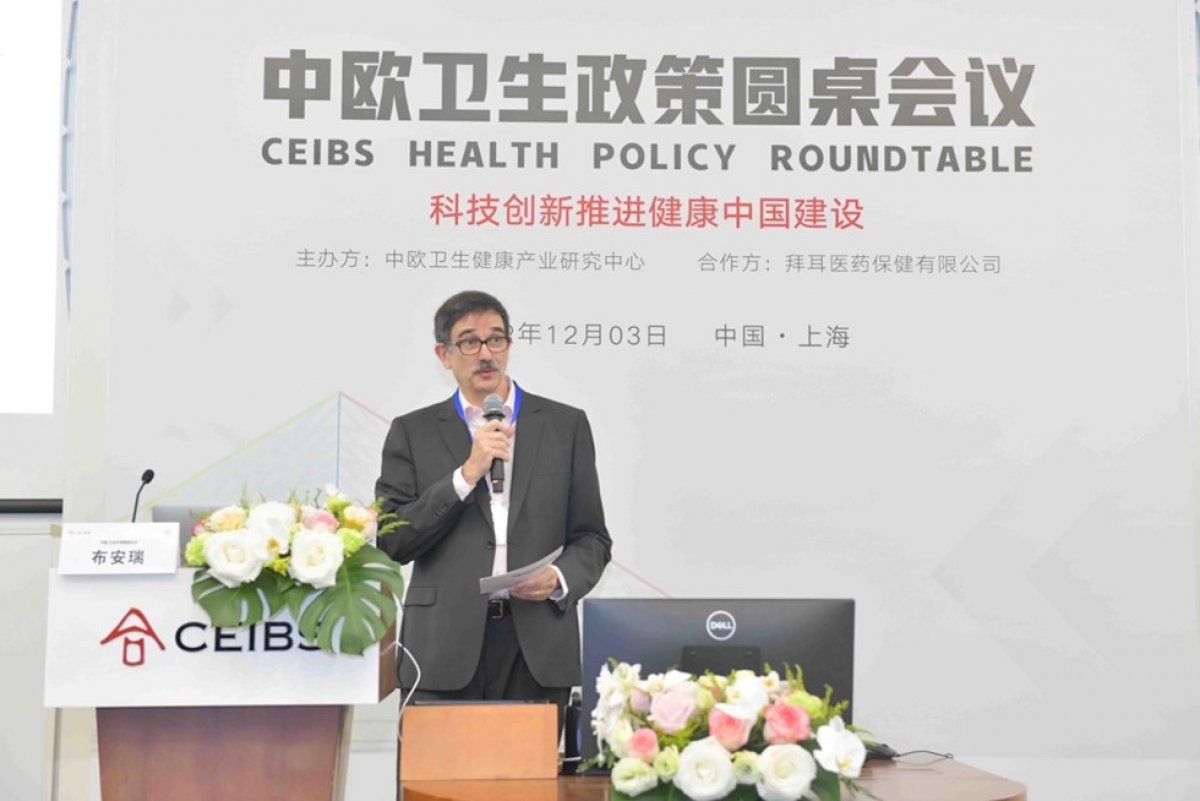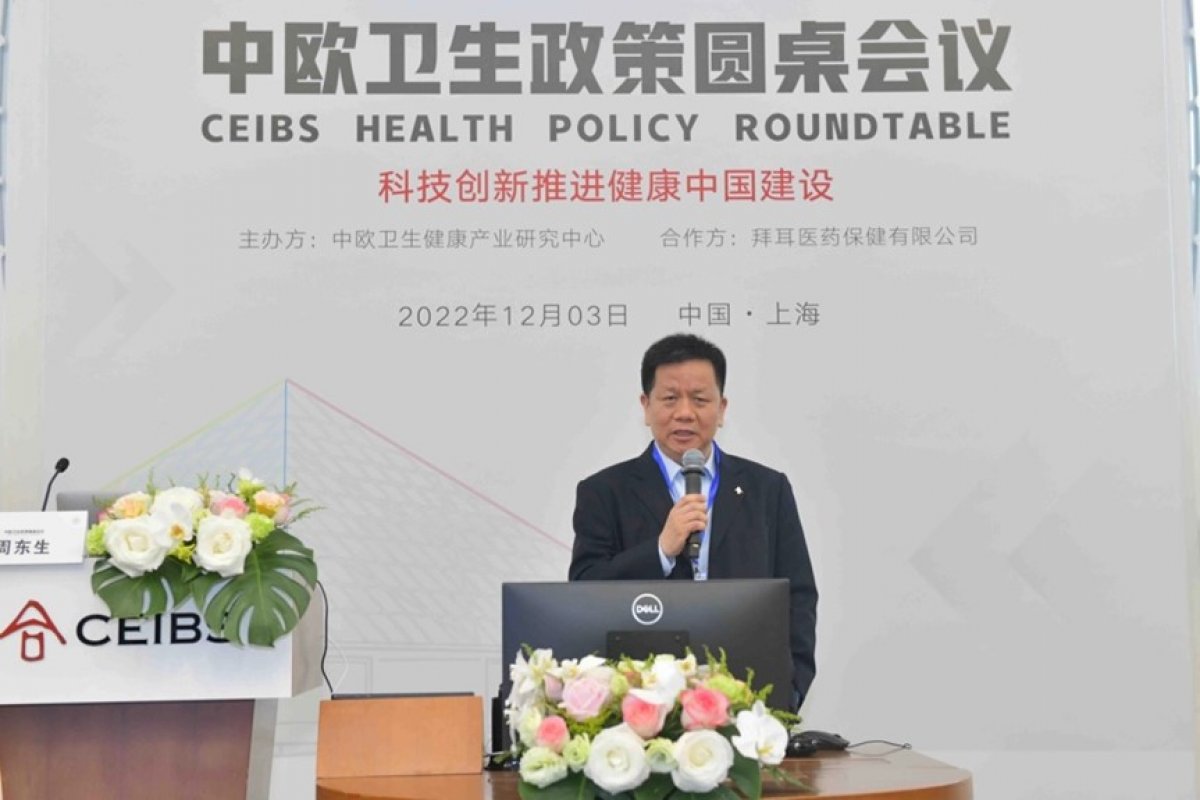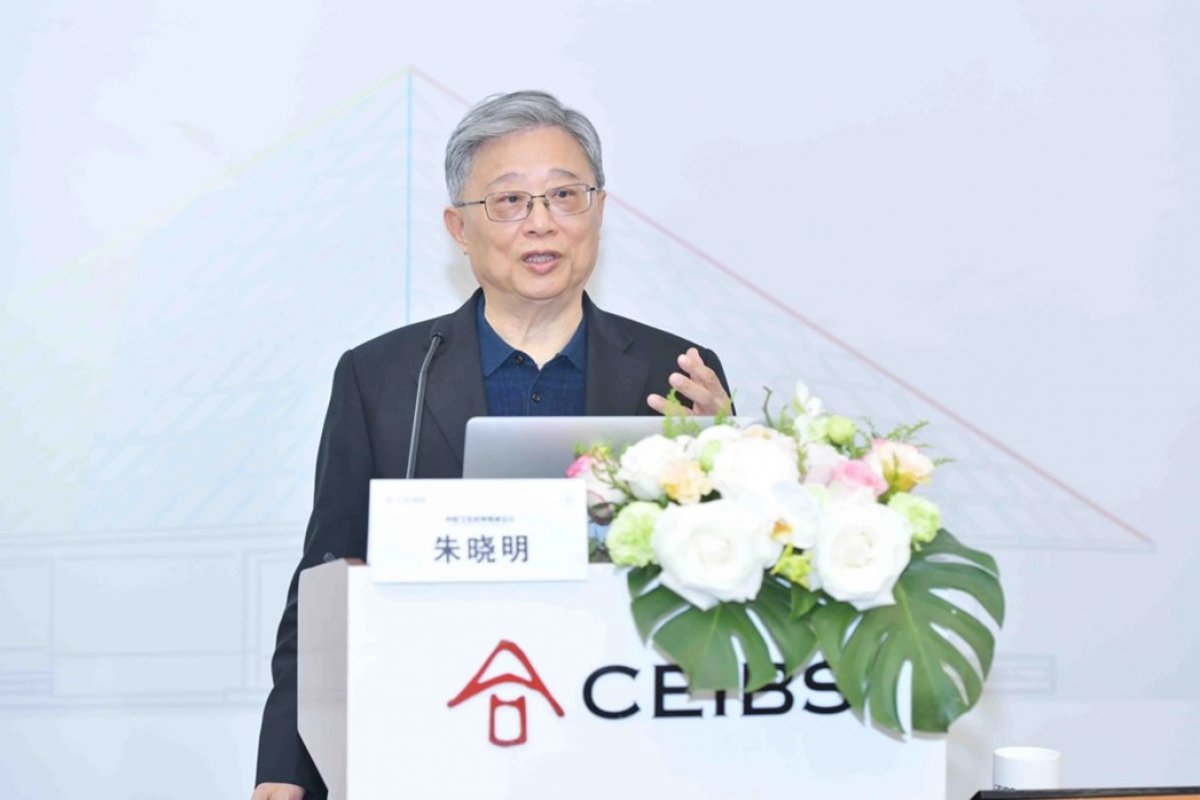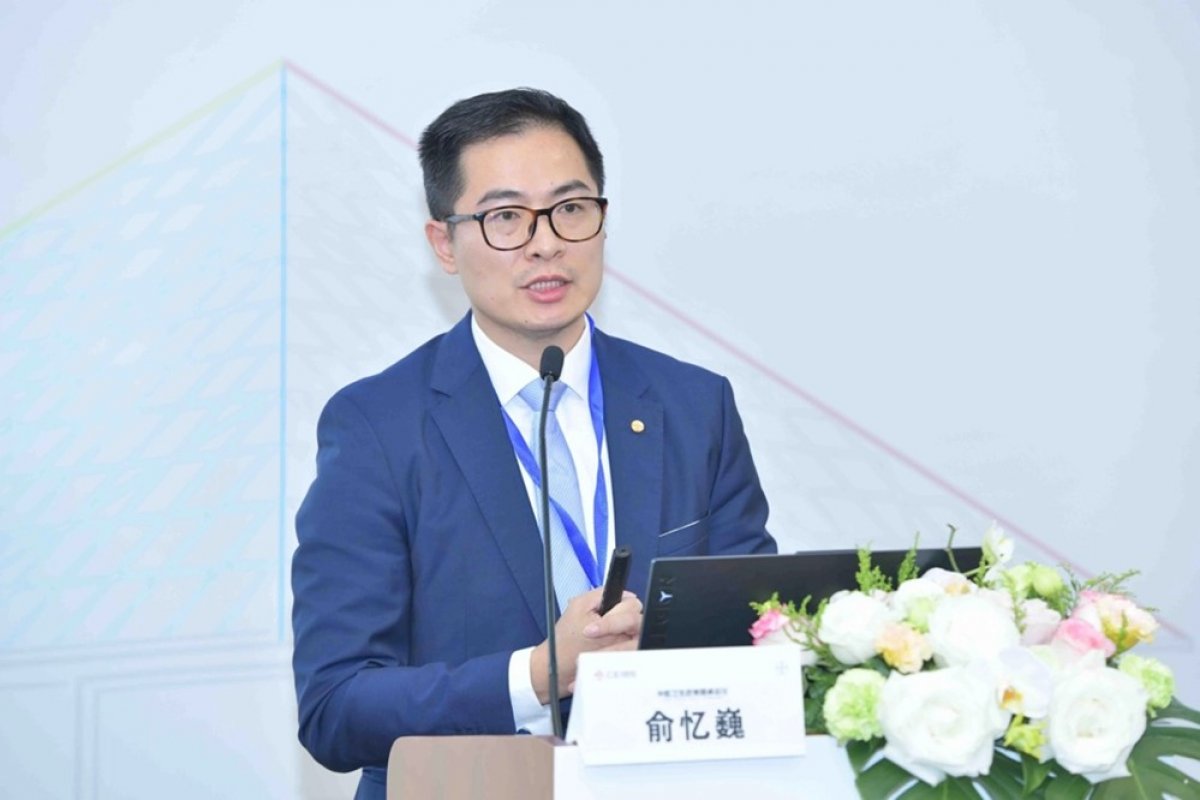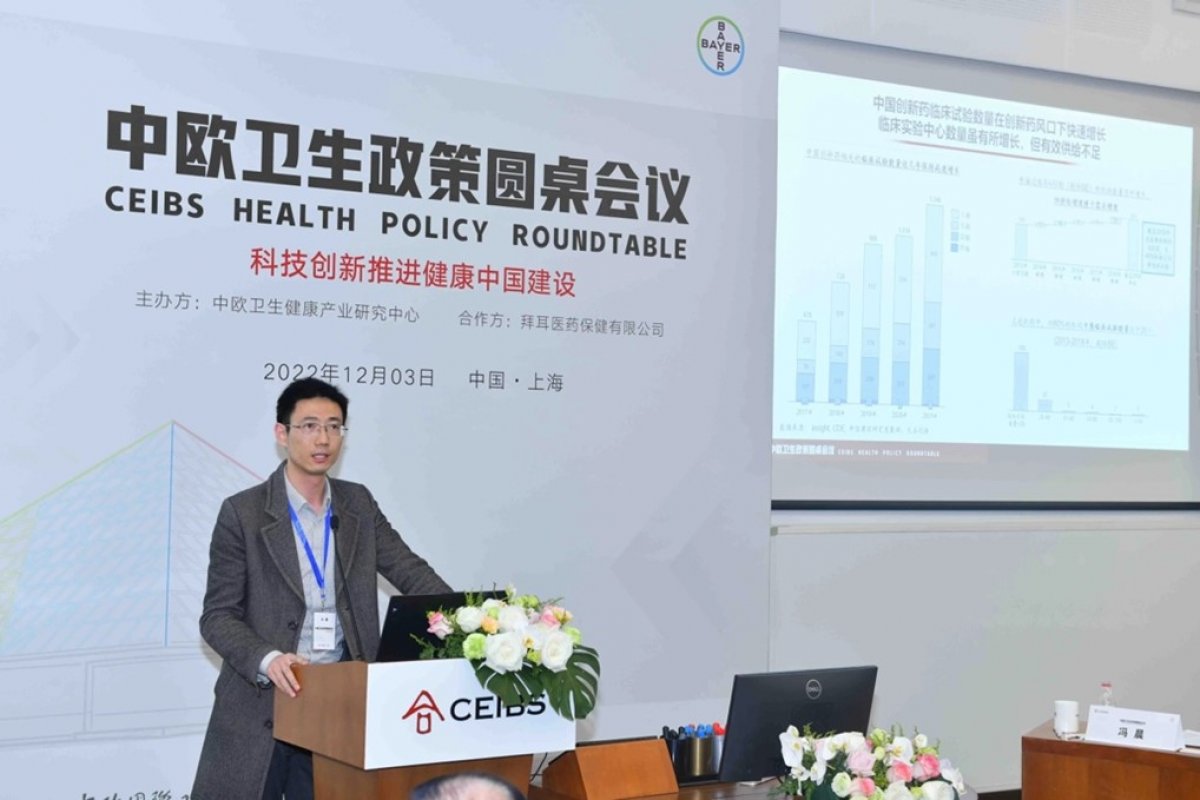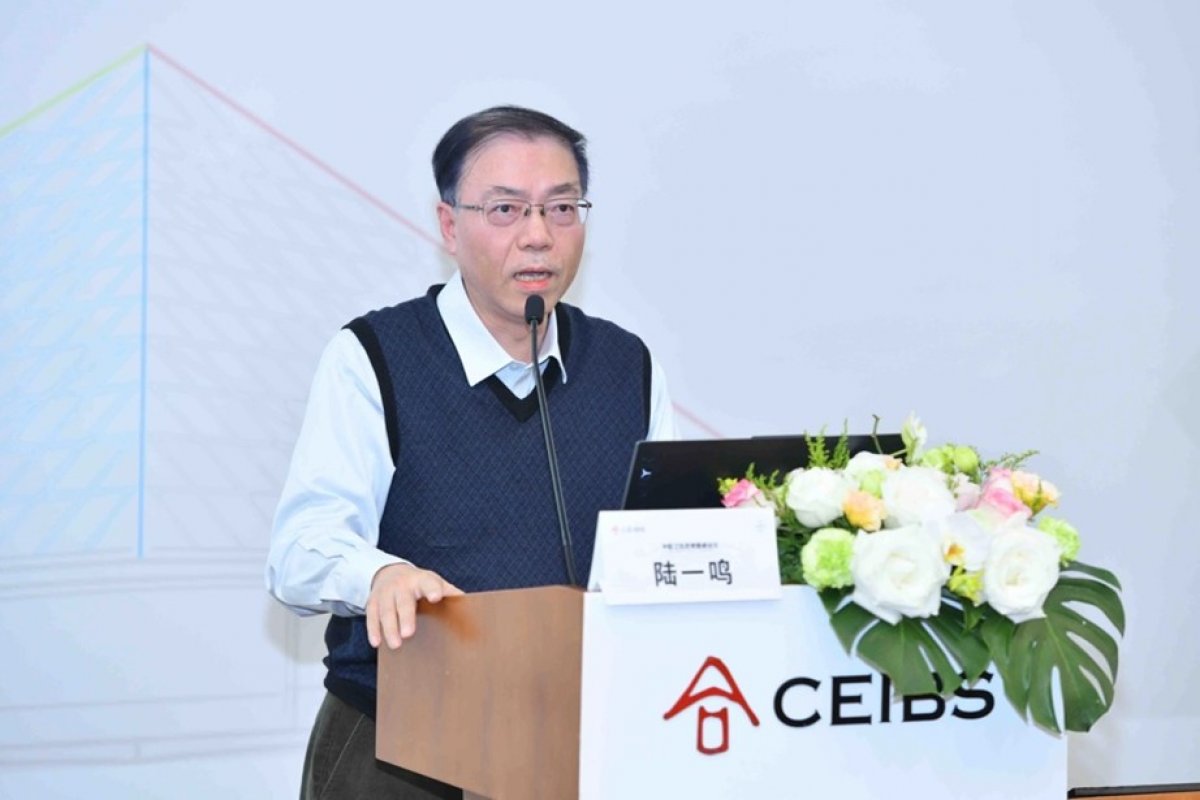Sci-tech innovation drives the building of a healthy China
December 3, 2022. Shanghai – Innovation in science and technology will drive the building of a healthy China, according to views shared by academics, experts, government officials and business leaders during the second CEIBS Health Policy Roundtable held both online and offline recently.
Co-organized by the CEIBS Healthcare Sector Research Centre and Bayer HealthCare, the roundtable was moderated by Eric Bouteiller, CEIBS Professor of Management and founding partner of Jumo Partners.
In his opening remarks, CEIBS Professor of Marketing and Director of the CEIBS Healthcare Sector Research Centre Zhou Dongsheng stated, “Cure sometimes, treat often, comfort always,” adding that science and technology plays an essential role in boosting the development of the health industry.
“Access to more innovative drugs, medical equipment and experts has enhanced our ability to heal, and has even made disease prevention possible,” he said.
CEIBS Professor of Management and Co-Director of the Smart Healthcare Startup Programme Zhu Xiaoming then delivered a speech on the importance of digital transformation. While drawing on expansive transformation cases from all over the world (including the digital transformation cases of four Shanghai public hospitals compiled by his team), he noted, “We’ve grasped each and every opportunity to achieve digital transformation and also shared the benefits delivered by our development as a global forerunner.”
Hainan province has also explored digital therapy and innovation in the medical industry, according to the Deputy Director of Hainan’s Provincial Health Commission and China’s National Health Commission. He pointed out that, “Digital therapy underpins the ‘Healthy China’ Initiative and plays different roles in prevention, diagnosis, treatment, and rehabilitation. It is of great significance for Hainan to develop digital therapy and we have already taken a host of measures to build clinical research demonstration bases, accelerate the registration approval, application and payment of digital therapy products, make digital therapy known to more people, and strengthen the construction of industry clusters.”
In his keynote speech, Deputy Director of Beijing Science and Technology Development Centre of Medical Health Liu Hui introduced a series of measures Beijing has taken to encourage healthcare innovations. He also highlighted the capital’s priorities of bolstering Chinese technological progress, expanding the spillover effects of the Beijing’s clinical innovations, and promoting the global presence and high-quality development of China’s medical industry.
In an online speech, Deputy of the Community Health Association of China Chen Bowen said that demand-driven science and technology innovation could speed up community health development.
“Community health work mainly focuses on basic public health services, family doctor contracting services and community health environment improvement. Due to their non-profit nature, it is hard for sci-tech research and achievements in community health to be adequately compensated by the market. Therefore, the questions of how to attract and support more researchers to engage in research in this field, how to promote the proliferation of sci-tech achievements in the public interest, and how to support the development of community health through technology, require support from all corners of society,” he told the audience.
Later, Vice President of the R&D-based Pharmaceutical Association Committee Wang Yun said she expects China to make clinical trials more effective and join the world in drug R&D efforts, but added that the country has a long way to go in developing innovative drugs because China’s pharmaceutical market overemphasizes generic drugs and off-patent medicines. She added that China enjoys huge potential in medicine R&D and its innovation efforts should focus on developing more new drugs through continuous improvement of key factors while delivering more benefits to patients and the industry in general.
Executive Director of President Office of Bayer Healthcare Yu Yiwei introduced Bayer’s cell and gene therapy development and said that, as a foreign-funded company, Bayer is reliant on innovative practices. He pointed out that, “Cell and gene therapy is going to reverse the worst of serious illnesses. The market is flourishing both in China and beyond, and Bayer is committed to building a cytogenetic therapy technology platform and a sustainable drug development pipeline.”
He continued, “We hope to collaborate with all sectors to bring the next generation of cytogenetic therapy to China for the benefit of Chinese patients.”
Director of the Drug Clinical Trial Institute of Peking University Third Hospital Li Haiyan then shared her insights on the building of clinical trial platforms for new drugs. She stated the importance of both clinical trial platforms and clinical research for new drugs, evidenced by innovative results and sustainable development empowered by various platforms established in the Third Hospital. The capacity of China’s pharmaceutical innovation system needs to be enhanced, she added.
Vice President of GoBroad Healthcare Group Feng Chen then introduced the company’s research practices. He pointed out that despite the growing number of clinical trials and clinical trial centres for innovative drugs in China, the effective supply remains insufficient. He further shared GoBroad’s accelerated application of clinical research by drawing on successes overseas in biomedical industry clusters in Massachusetts and the Mayo Clinic.
President of Shanghai Nanxiang Hospital (Ruijin Hospital Branch) Lu Yiming also gave a speech on the application of clinical research using the example of emergency treatments and geriatrics. He elaborated on how to apply clinical research and illustrated the importance of sci-tech innovation and collaboration between doctors and the medical industry to benefit patients and promote the high-quality development of clinical medicine and medical technology.
During the roundtable discussion, Wang Yun, Yu Yiwei, Li Haiyan, Feng Chen and Lu Yiming exchanged views on the development of cell and gene therapy, incentives for research and innovation of hospitals and doctors, the ecological synergy of medical sci-tech innovation, and the synchronization of clinical research in China and the rest of the world.






